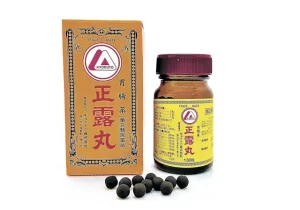FDA rejected the application of CD3 monoclonal antibody Teplizumab
- Gut Bacteria Enzymes Offer Hope for ABO Universal Blood Transfusions
- Well-Known Japanese Medicine Exposed for 30 Years of Data Falsification
- Oregon Reverses Course: From Decriminalization to Recriminalization of Drug Possession
- Why Lecanemab’s Adoption Faces an Uphill Battle in US?
- Yogurt and High LDL Cholesterol: Can You Still Enjoy It?
- WHO Releases Global Influenza Vaccine Market Study in 2024
FDA rejected the application of CD3 monoclonal antibody Teplizumab
FDA rejected the application of CD3 monoclonal antibody Teplizumab. On July 6, ProventionBio announced that the FDA had refused to approve the company’s anti-CD3 monoclonal antibody teplizumab for delaying clinical type 1 diabetes (T1D) in high-risk individuals with a biological product license application (BLA).
The reason is that in a single-dose, low-dose pharmacokinetic/pharmacology (PK/PD) bridging study conducted in healthy volunteers, the product to be marketed was compared with the product previously used in clinical trials. Show PK comparability.
Since PK is still the primary endpoint for proving the comparability of the two products, the FDA requires the company to appropriately establish the PK comparability between the product to be marketed and the clinical trial product, or provide other data sufficient to prove the comparability of PK is unnecessary.
The CRL did not mention any data deficiencies related to safety and effectiveness, and the acceptability of the proposed trade name of teplizumab has been confirmed. The FDA required the company to provide security updates as part of the BLA resubmission.
The company expects that relevant PK/PD data will be collected later this quarter from the PK/PD subgroup of newly diagnosed T1D patients undergoing 12 days of treatment in the ongoing Phase III PROTECT trial. Based on the results of the subgroup research and the ongoing discussions with the FDA on any other data and analysis that support the comparability of PK/PD, the company will decide whether to submit these data to the FDA for review.
In the CRL, the FDA also put forward several additional considerations related to product quality. The company believes that these considerations have either been resolved in the BLA amendment submitted, or can be resolved in the short term. CRL responded by acknowledging that the FDA has not reviewed several amendments that the company has submitted to meet certain chemical, manufacturing, and control (CMC) data requirements.
The FDA also stated that during a recent general inspection, certain defects (not specifically teplizumab) in the filling/finishing production equipment used by the company need to be resolved before approval.
Teplizumab is a monoclonal antibody that targets CD3 antigen on the surface of T cells. It mainly binds to CD3 on the surface of effector T cells to inhibit its attack on pancreatic β-cells, thereby reducing the damage to pancreatic β-cells. The Fc region of teplizumab is designed into an Fc receptor non-binding (FNB) structure through amino acid modification, thereby reducing its binding to complement and Fc receptors and reducing related toxicity.
Based on the results of a phase II clinical trial (NCT01030861), Provention submitted a rolling application for teplizumab to the FDA and obtained priority review qualification. The FDA expert committee voted for teplizumab’s BLA application with a 10:7 vote. Teplizumab is expected to be the first approved therapy to change the course of type 1 diabetes.
This phase II trial aims to evaluate the efficacy of teplizumab in patients without type 1 diabetes but at high risk of clinical disease development. The subjects were treated with teplizumab (n=44) or placebo (n=32) for 14 days.
The results updated in March 20201 showed that the median time to clinical diagnosis of type 1 diabetes in the Teplizumab group was 59.6 months, while that in the placebo group was 27.1 months. Compared with the placebo group, teplizumab prolonged the diagnosis of type 1 diabetes by approximately 3 years (32.5 months).
In patients treated with teplizumab, C-peptide levels were not only stable, but also reversed/increased (p=0.02), while the placebo group continued to decline. It suggests that the function of β-cells is preserved and the function of dysfunctional β-cells is restored.
The occurrence of adverse drug reactions is related to the mechanism. Of the 20 grade 3 events in the teplizumab group, 15 cases (75%) involved lymphopenia, all of which occurred within 30 days of administration. Mild cytokine release syndrome causes transient mild rash and neutropenia.
The FDA has previously granted teplizumab breakthrough therapy designation. A phase III clinical study (PROTECT study) of teplizumab for the treatment of newly diagnosed insulin-dependent T1D is underway.
Teplizumab was originally developed by MacroGenics. In 2007, Eli Lilly acquired teplizumab from MacroGenics for US$41 million and US$200 million in mileage. However, in a phase III trial conducted in 2011, teplizumab failed to reach the primary endpoint and declared clinical trial. failure. Therefore, Eli Lilly discontinued and abandoned further development of teplizumab. In 2018, Provention obtained the right to develop teplizumab from MacroGenics and achieved positive results in the trial
(source:internet, reference only)
Disclaimer of medicaltrend.org
Important Note: The information provided is for informational purposes only and should not be considered as medical advice.



